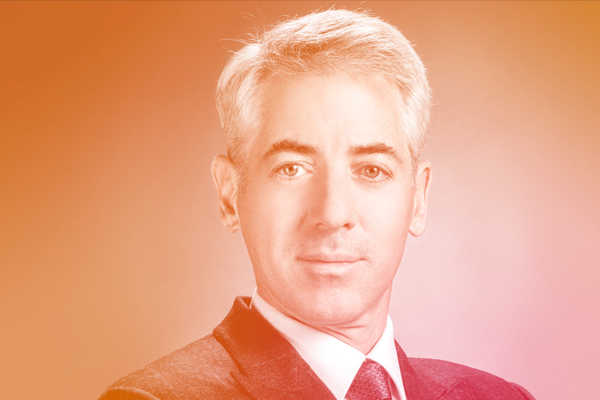
Penfolds is the most famous Australian wine brand and has been on a rollercoaster ride for the past four decades, having been through six different corporate owners.
It resides now as the crown jewel in ASX-listed Treasury Wine Estates, which had delivered immense riches to shareholders on paper after soaring to beyond $19 late last year on a China luxury wine sales boom. But it is now less than half of that, hovering around $9.18, because of the fear that the hardline approach from China's President Xi Jinping and senior leaders in the Communist Party could either block Australian wines from being sold into China, or impose punitive tariffs in a worsening trade spat.
The high-level "wolf warriors" of China, along with the COVID-19 pandemic which has hurt broader demand around the world in hospitality lockdowns, have combined to trash the share price of Treasury Wines. It plunged to a five-year low of $7.96 on November 5, but has made a partial recovery. The company is speedily working on a host of Plan B, C and Ds should the worst fears of investors occur and it becomes one of the highest-profile victims of the diplomatic row between China and Australia.
Penfolds has a history stretching back to 1844 when Christopher and Mary Penfold brought some vine cuttings to South Australia and planted them in the Adelaide foothills. The wines were originally intended as a medicinal aid for patients of Dr Penfold's medical practice.
Through the flagship Penfolds Grange, the most well-known wine from Australia, the "halo" effect has been in evidence as the entire range becomes more sought-after under a strategy by former chief executive Mike Clarke to elevate the brand into the luxury category in China.
It has been very successful. JP Morgan analyst Shaun Cousins estimates that China sales make up about two-thirds of Treasury Wines' total Asian sales, which amounted to $617 million in 2019-2020 and delivered earnings before interest and tax of $244 million.
The Asian business is the most profitable for Treasury, with margins of 39.5 per cent. Compare that with profit margins of 13.8 per cent in North America, where all players have been hit by a glut of cheaper wine which is now improving after a low Californian vintage, and 22.5 per cent in the Australasian market.
Trying to value Treasury Wines, which also makes Wolf Blass, Seppelt, 19 Crimes and Squealing Pig, is a nightmare for analysts and investors.
The unknowns around potentially hefty China tariffs on all Australian wine, or worse still a total ban on imports as retribution for the federal government speaking up on wanting an inquiry on how the coronavirus started, have the wine industry very nervous. The stance has also caused serious headaches in the lobster, coal and timber industries.
JP Morgan's Cousins has a ''neutral'' rating on Treasury Wines and a 12-month price target of $9 on the stock. This assumes that the stock keeps trading on a price-earnings multiple of 19 times.
Cousins says the uncertainty around the outcome of the formal Ministry of Commerce anti-dumping investigation into Australian wine is a "risk that is difficult to price''.
Treasury Wines chief executive Tim Ford is working on mitigation strategies should the news be dire. One of the options is to pass on any extra tariff costs, while another is to reallocate wines to other markets.
Cousins says a ''reallocation'' strategy – where Treasury would rapidly shift to supplying wine destined for China to other countries – could limit some of the downside.
But the ''execution'' risk in pursuing this strategy is substantial, with other markets not growing nearly as quickly as China.
JPMorgan has crunched the numbers on a potential reallocation scenario and concluded that earnings before interest and tax and before the SGARA accounting standard could fall by 14 per cent in 2021-22.
A strategy embarked on by Clarke in 2018, of extending the Penfolds brand beyond its South Australian roots to become a global brand with a Californian version and a French version, potentially provides some minor salvation.
Wines from the US and France being sold into China presumably won't be hit by tariffs imposed by China.
Treasury Wines revealed in July 2018 that it would begin making the range of Penfolds red wines using premium grapes from California's Napa Valley. It also has a Penfolds brandy, a Penfolds champagne and red wines from France and a fortified shiraz called Lot 518, infused with Baijiu, a clear spirit that is hugely popular in China, under the Penfolds banner.
Ford signalled in early November that the range of Penfolds red wine from Californian vineyards would appear in the marketplace from March 2021.
The first batch of Penfolds red wines from France is earmarked to become available from late 2022 or early 2023.
Tribeca Investment Partners' lead portfolio manager Jun Bei Liu says the stock is very cheap given the strength of the demand for premium wine coming from the Chinese market.
She labelled it her top pick at the 2020 Sohn Hearts & Minds Conference, saying its valuation could be almost entirely supported by its inventory and property portfolio.
"Its valuation is pretty much supported by all those premium wines sitting in its cellar,” she says.

She estimates Treasury has $4 billion of premium label wine in its cellar, which represents about 70 per cent of its market value.
UBS analyst Aryan Norozi has a 12-month price target of $8.80 on the stock and values the China business alone around $4 billion on an enterprise value basis. Treasury Wines in early November announced it had put on ice the work on a potential demerger of the Penfolds business into a stand-alone ASX company by late 2021, because of the China uncertainty.
The Penfolds brand has proved to be highly resilient through all manner of corporate machinations but the full force of the Chinese government's wrath is a huge test.
In the mid-1970s Penfolds was acquired by then NSW brewer Tooth & Co, and in the 1980s became part of the Adelaide Steamship Company, built up by corporate raider John Spalvins.
Spalvins’ empire fell apart after the 1987 sharemarket crash. Penfolds was sold off to a different beer company, SA Brewing, in 1990. SA Brewing, an ASX-listed company, subsequently changed its name to Southcorp in 1993, and then offloaded packaging and water-heater businesses to become a stand-alone wine business known as Southcorp Wines.
It then merged with privately owned Rosemount Wines in 2001 in what was effectively a reverse takeover, to become the world’s largest wine company. But things went on the skids under new management and in 2005 it was bought out by beer giant Foster’s Group, which had its own large wine business led by brands including Wolf Blass and Beringer in California.
Foster’s was split into two companies in 2011. The wine company was rebadged Treasury Wine Estates and demerged as a debt-free wine company.
JPMorgan's Cousins says reallocating more than three million cases of wine now sold in China isn't simple.
Treasury Wines won't be the only company in Australia looking to diversify and this is likely to bring margins down for everyone.
There would be increased discounts and rebates, extra advertising and promotion in the Australian market, while volume growth is already ''modest'' in other big markets such as North America and Europe.
In North America, demand for luxury wine from Australia is ''expected to be weak given the perception of Australian wine and skew of leading brands'' is to more commercial price points. Cousins mentions 19 Crimes, which is a Treasury Wines brand with a strong marketing partnership with American rapper Snoop Dogg, and the big-selling Yellow Tail brand made by Griffith-based Casella Wines.
Cousins says Treasury has had a ''tumultuous'' last 12 months after first grappling with the commercial wine oversupply in the United States, bushfires in Australia which resulted in smoke taint for some smaller rivals in some wine regions, the COVID-19 pandemic and the China trade spat.
The share price has been volatile and the stock has underperformed the ASX.
But after all that, and the big hit to the share price, valuation support is emerging at around the $9.22 mark.
The Chinese Ministry of Commerce investigation is, however, a risk ''with significant potential downside''.
He forecasts EBIT margins across Treasury to fall to 19.9 per cent in 2020-21 from 19.8 per cent in 2019-2020, and rise again to 21.6 per cent in 2021-22.
This article was originally posted on The Australian Financial Review here.
Licensed by Copyright Agency. You must not copy this work without permission.


In yet another fantastic episode with Equity Mates, first-time conference manager Qiao Ma chats with the guys about her incredible first investment, the investment philosophy of core manager Cooper Investors and the investment thesis behind her conference pitch, Shenzhou International.


NYU Stern School of Business Professor, serial entrepreneur and business podcaster Scott Galloway has blasted “sociopathic” big tech and the US government, while outlining the profound implications of COVID-19 for the US economy and its big players.


Australian investors will be very familiar with potential gains that can be created from innovations in the payment system, think Afterpay. In China, the mobile payments market is both enormous and advanced in technical terms, that’s where Yeahka Ltd operates — a top stock choice from Beeneet Kothari of New York-based Tekne Capital Management at the SOHN Hearts & Minds Investment Conference 2020.


Leading US fund manager Bill Ackman has predicted that 2021 will be a “very good” year for the US sharemarket, with a combination of low interest rates, fiscal stimulus and a new president who will not introduce radical policies.


The rise of telehealth and online medicine as a result of the COVID-19 pandemic has been behind the recommendation of New York based fund manager Cathie Wood, for US based telemedicine and virtual health care company Teladoc Health as her stock pick for the 2020 Australian Sohn Hearts & Minds Investment Conference.


When Bill Ackman realised coronavirus was about to run rife in the West he knew he had to do something fast to protect the $US10bn ($14bn) of assets managed by Pershing Square, much of it in restaurant brands that were vulnerable to the economic lockdowns he saw coming. Rather than sell stock, he opted to hedge via credit default swaps.


Halpert's “digital decolonisation” thesis is that entrepreneurs, companies, governments and consumers in developing markets are reclaiming their digital economies and ecosystems from multinationals, and developing indigenous solutions for local problems.


Billionaire investor Bill Ackman bemoaned his losing bet on Warren Buffett’s Berkshire Hathaway during a virtual appearance at the Sohn Hearts & Minds investment conference this week, according to the Australian Financial Review.


Bill Ackman predicts 2021 will be a rewarding year for the equity market and urged investors to "go long", but the Wall Street legend and Pershing Square founder worries that irrespective of Pfizer's vaccine breakthrough, the US faces a grim winter of coronavirus casualties.


Global stocks exposed to the technology boom, whose performance was partially fuelled by the coronavirus crisis, were the big winners from the calls made by top investment minds at the Sohn Hearts & Minds Investment Conference last year.


Leading US fund manager Bill Ackman has predicted that 2021 will be a “very good” year for the US sharemarket, with a combination of low interest rates, fiscal stimulus and a new president who will not introduce radical policies.


Online retail stocks have become the small cap investment story of 2020, according to Todd Guyot, a portfolio manager with Regal’s $320m Australian Small Companies Fund. “We have done well out of the whole online theme of late,” says Guyot, who will be tipping a stock at the fifth annual Sohn Hearts & Minds conference on Friday.


When Bill Ackman realised coronavirus was about to run rife in the West he knew he had to do something fast to protect the $US10bn ($14bn) of assets managed by Pershing Square, much of it in restaurant brands that were vulnerable to the economic lockdowns he saw coming. Rather than sell stock, he opted to hedge via credit default swaps.


Tekne Capital Management portfolio manager Beeneet Kothari says US technology stocks continue to look attractive given their strong earnings outlook and dominant positioning in what he sees as a multi-decade reshaping of economies and business fuelled by COVID-19.


The shock suspension of the Ant Group initial public offering, slated to be the biggest float in history, has left investors reeling, but it could be back up and running within weeks, according to Tribeca Investment Partners’ Jun Bei Liu.


US tech giants are on track: not just to soar through the pandemic, but to structurally lock in their competitive edge well beyond COVID-19. What is more, there will be a tsunami of reallocated capital across the economy, creating huge winners and losers that investors should get ahead of if they don’t want to miss out.


One of the fiercest critics of 'Big Tech', author and academic Scott Galloway, has admitted his bearish call on Afterpay was wrong and warned that America's internet giants are poised to consolidate power following the coronavirus pandemic.


Scott Galloway, outspoken academic and expert on big tech, says "Jedi mind tricks" and "consensual hallucination" are responsible for some huge market valuations, and warns Silicon Valley giants will entrench their dominance in the post-pandemic world.


It has gone down in Wall Street folklore as one of the greatest trades in history – a $US27 million ($37.8 million) bet during the market meltdown in March that returned $US2.6 billion in the space of three weeks. And the mastermind behind it, New York hedge fund titan Bill Ackman, is now bracing for another bout of turbulence.


Wall Street legend Bill Ackman says megacap stocks such as Starbucks will come out of COVID-19 with a bigger moat and a market dominance like never before, and no election outcome will make a difference to the plight of wrecked small businesses.


A little under a year ago, Cathie Wood named Tesla as her top stock pick for 2020. Speaking at the Sohn Hearts & Minds Investment Leaders Conference in Sydney last November, Ms Wood, who runs US technology-focused investment firm Ark Invest, said her bearish case was that the stock price would double by 2024. It hit that milestone less than three months later.


Rory Lucas may have one of the best jobs in finance. As the chief investment officer of Hearts & Minds Investments (HM1), it's his duty to oversee the $780 million portfolio of the best ideas from some of the world's top investors.


Legendary Wall Street investor Bill Ackman will headline the 2020 Sohn Hearts & Minds investment leaders conference this year in a major coup for the event that has raised more than $20 million dollars for medical research since its inception in 2016.